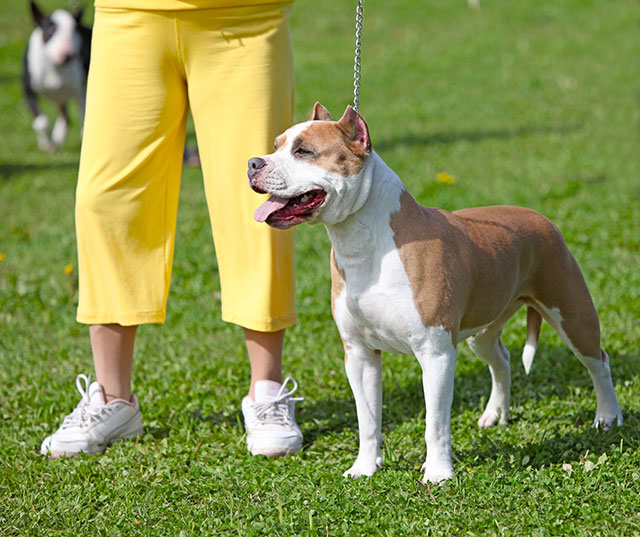Dog breed training groups

Investigate each group carefully before becoming a member
There are hundreds of dog training books that can be found in libraries, bookstores, and on the Internet. Most of them are just fine and teach thorough, positive training methods. But I have yet to see any of them that make a point of stressing the fact that dogs are living, breathing beings that have emotions, feelings, and unique personalities.
You can have two Labrador Retrievers that, emotionally, may be as different between each each as a Rottweiler would be to a Pomeranian. The training protocol and corrections for one dog may not be necessarily suited to the character and personality of the other.
A suitable training correction for a dog that has an outgoing personality and is on the stubborn side may cause trauma to a dog that is naturally sensitive and cannot emotionally handle such dog training tactics, even if both dogs are the exact same breed.
Professional obedience & dog breed clubs
You’ll find many clubs devoted to specific breeds and training groups all around the country. They are considered to be the most reliable and educated people to go to for training and specific breed information. For the vast majority of information, this is probably true, but some are are also guilty at assuming all dogs of the same breed should be trained and treated in the exact same manner.
The blame should rest upon whomever is running the group. However, choosing this leader is typically nothing more than a personality contest instead of their education and training history with canines. Criterion for the selection usually boils down to whomever is the most persuasive speaker, has had the longest membership, or even how bad the person wants the job.
There was one group who selected the lead trainer and spokesperson solely based on the fact that she had the best working dog the year before. There ware no requirements about success in the dog training area.
Another group had a specific opening for just “trainer” and the only requirement was that they had to have worked their own dog up to receive the Companion Dog Title. What training methods that person used, or whether or not it was positive or aggressive, had no bearing on the position. Pretty important stuff if you ask me, right?
Investigate before allowing your dog to be trained by such a group
If you are considering paying for dog training lessons with a specific group, even if the group is nationally recognized, ask the same questions you would from any dog trainer:
- What are his or her references?
- How many dogs have the trained?
- Where did they get their knowledge and training advice from?
- Do they admit that no 2 dogs are alike, even from the same breed type?
- Do they use harsh training methods?


